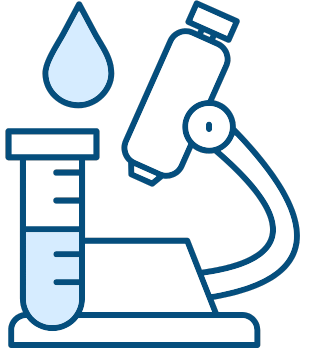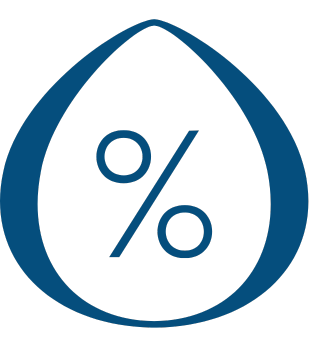Although we all have a runny nose, it is an unpleasant and uncomfortable condition. Runny nose can be caused by a variety of reasons, but is most often associated with viral infections. In this article, prepared in collaboration with Drops Clinic’s specialist family doctors, we will explore the symptoms of a runny nose and examine the main causes of this condition. We will also look at the most effective treatments and preventive measures for runny nose. Only by understanding how it develops and how to treat a runny nose can we help the body fight infection.
Causes and symptoms of diarrhoea
Rhinitis is a widespread respiratory disease, usually caused by rhinoviruses. The main symptoms of runny nose are nasal congestion, sneezing, itchy nose, watery eyes and headache. Sometimes these symptoms may be accompanied by fever, sore throat, cough, general weakness and fatigue. These symptoms can cause discomfort and interfere with daily life.
Nasal congestion is caused by inflammation in the lining of the nose. This is the body’s natural response to a viral infection. It tries to get rid of viruses by sneezing and nasal secretions.
Thus, viral infection is the main cause of runny nose. Although it is usually caused by rhinoviruses, it can also be a symptom of other viruses such as coronaviruses or adenoviruses.
The viruses that cause a runny nose are transmitted by airborne transmission. Therefore, a runny nose is spread from person to person through the air when a sick person sneezes, coughs or talks. The viruses enter the body through the nose, eyes or mouth, or through contact with contaminated surfaces.
There are several risk groups that are more likely to have a runny nose. These include children, the elderly and people with weak immune systems. Also, the risk of a runny nose can be increased by excessive physical or psychological stress, a weakened immune system due to other illnesses or medication.
Symptoms of diarrhoea usually appear within a few days of the start of the infection and can last from a few days to several weeks. It is important to note that, although the symptoms can be uncomfortable, most cases of runny nose are mild and pass without much treatment.
The course of dementia
Dementia progresses in several phases. Understanding the specifics of each phase can help to manage symptoms more effectively and alleviate the patient’s condition.
Constipation usually starts with nasal congestion, sneezing and itchy nose. Later, it gradually develops into tearing and headaches. Usually, it is a viral infection that resolves spontaneously within 7-10 days.
The course of a runny nose can vary from person to person, depending on the state of the immune system and other health factors. Importantly, treatment for viral rhinitis is usually symptomatic, aimed at relieving discomfort.
In the first phase, when the nasal discharge is copious but not yet thick and nasal congestion is not too severe, it is recommended to wash the nose with sea water. Medicines to reduce nasal secretions may also be useful at this stage.
In the second phase, when the mucus becomes thick and nasal congestion becomes more intense, it is necessary to use products that thin the mucus and reduce nasal swelling. These measures help to reduce the feeling of discomfort and make it easier to clean the nose.
In the third stage, when breathing has become easier but the mucus is still thick, it is important to continue thinning the mucus and to use sea water to wash the nose.
In addition to medicines, folk remedies can be used to boost immunity. Such simple steps will help the body to cope with the infection more quickly and speed up the process of treating a runny nose.
How to treat a runny nose?
Although uncomplicated, constipation requires appropriate treatment, which is usually symptomatic. The main aim of treating a runny nose is to reduce symptoms and improve the patient’s well-being.
Symptomatic treatment of runny nose includes rest, plenty of fluids and maintaining the body’s resistance level. Although we do not normally feel too unwell with a runny nose, we should still avoid excessive physical exertion and allow the body to recover.
Plenty of warm fluids help to thin nasal secretions and relieve nasal congestion. Washing the nose with sea water will also relieve the symptoms.
Pain and fever killers can be helpful in reducing discomfort, especially if you have other symptoms along with a runny nose. However, it is important to pay attention to the ingredients in the medicine and to consult your doctor about the right choice of medicine.
Nasal drops or saline sprays can help relieve nasal congestion, but they should also be used with caution and avoided for too long as they can be addictive.
Depending on the severity of your symptoms and the duration of your runny nose, you may need more serious medical treatment. If the symptoms of a runny nose persist for a long time, become more intense, or are associated with other health problems, you should seek urgent medical attention. Only a doctor can determine whether antiviral drugs and other special measures are necessary, taking into account the patient’s medical condition. The most important thing is to consult a health professional and follow his instructions.
Measures to prevent constipation
Preventing runny nose is important to reduce the spread of runny nose and avoid the disease altogether. There are various ways in which you can improve your overall body health and protect yourself from this viral infection:
- Intravenous therapy. This is an excellent way to strengthen the body’s defences against infections and viruses. A specially designed course of intravenous therapy, which includes intravenous injections of various vitamins, minerals and antioxidants, can be used as a complementary tool to strengthen the body.
A course of anti-inflammatory therapy will help your immunity prepare to fight viruses and bacteria. It can also be applied at the first sign of a runny nose.
However, it is important to note that it is important to consult your doctor before starting any treatment, including intravenous therapy. Our specialists will listen to your complaints and preferences and, based on a thorough examination, select the most appropriate injections. You can register for a consultation here.
- Proper hygiene rules. Hand hygiene is an essential part of prevention. Frequent hand washing with warm water and soap, especially after using the toilet, in public and before eating, removes potential viruses from the skin surface. Disinfectants such as antiseptic gels or wipes can be useful, especially when there is nowhere else to wash your hands.
- Covering the nose and mouth. Hygienic disposable masks can be effective in protecting against airborne viruses. They not only protect others but also reduce direct contact with the virus. It is particularly important to wear them in public places or when there is a high risk of infection.
- Keeping a distance from sick people. Being vigilant and keeping a distance from people who show symptoms of illness can help prevent transmission of the virus. It is best to avoid direct physical contact with sick people whenever possible.
- Immunisation. Vaccinations against influenza or viruses are an effective means of preventing runny nose. They strengthen the body’s immune system, helping it to recognise and fight viruses. A consultation with your doctor can help determine the appropriate schedule and need for vaccinations.
- Plentiful fluid intake. Drinking plenty of water is important to maintain fluid levels in the body, as it helps protect it against infections.
When do I need a consultation from a healthcare professional?
While constipation is usually an easy and self-limiting condition, there are certain situations when a consultation with a healthcare professional becomes necessary. First of all, if the symptoms persist for a long time and do not improve or even worsen over a few weeks, this may be a signal that the body is not coping with the infection and medical intervention is needed.
Consultation with a health professional also becomes necessary if the person has other diseases or is at risk of complications. For example, in children, the elderly or people with weakened immune systems, a runny nose can cause more serious problems. In this case, it is important to consult a doctor quickly.
Another case where it is important to seek specialist advice is when there is a sudden and pronounced worsening of the condition. If you develop a high body temperature, chest pain or difficulty breathing, you should consult a specialist immediately. In the event of other vague symptoms, a doctor should also be consulted.
A health professional can carry out a more detailed assessment of the condition, determine the nature of the infection, prescribe appropriate treatment and monitor the patient’s condition if necessary. It is important to be aware that self-treatment, especially with antibacterial drugs, may be inappropriate and may lead to undesirable effects. Therefore, a consultation with a doctor is necessary to ensure proper and effective treatment of runny nose.
What are the complications if the runny nose persists?
A runny nose that lasts for a long time can lead to various complications and discomfort for the body. One of the main risks is bacterial infection. A runny nose that persists for a long time can lead to sinusitis or bacterial bronchitis, which can cause severe nasal congestion, headaches, coughing and fever.
In addition, a prolonged runny nose can cause ear infections, especially in children. Inflammation can lead to severe ear pain and even temporary hearing loss. Other negative effects of a runny nose include exacerbation of asthma or the development of other respiratory diseases.
Long-term runny noses can also have an impact on a patient’s overall quality of life. Persistent fatigue, lack of quality sleep and reduced concentration levels can affect performance at work and in daily activities. In addition, a runny nose can cause emotional discomfort and mood swings.
It is important to realise that every organism is unique. Therefore, some people may be more affected by the symptoms of a runny nose. If the runny nose persists for a few weeks or if the symptoms worsen, it is important to contact a healthcare professional as soon as possible. Only a specialist can carry out a more thorough assessment, identify possible complications and prescribe the right treatment to help prevent long-term health problems.
Treating constipation is an important aspect of alleviating the symptoms of this condition and promoting rapid healing. Viral infections, especially rhinoviruses, are the main cause of runny nose. In order to prevent the disease, it is important to pay attention to effective preventive measures and to observe proper hygiene. If the symptoms are noticed in time and treatment is taken, the condition can be effectively managed.
If you have a runny nose or want to prevent it, the expert team of doctors at Drops Clinic is ready to help you. Our doctors will examine you, prescribe the right course of treatment and help you get back on your feet quickly. You can register for a consultation here.




